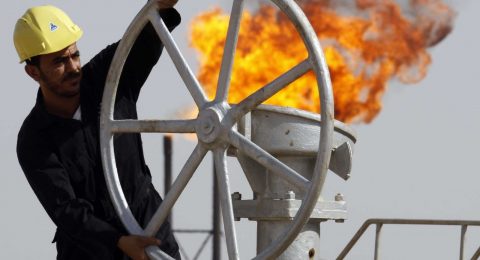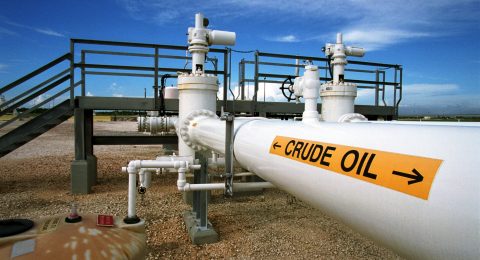Iraq, OPEC’s second-largest producer, raised the selling price for February shipments to Asia of its main Basrah Light crude by 30 cents a barrel, after Saudi Arabia boosted its pricing to the region.
Iraq set Basrah Light at a discount of $3.70 a barrel to the average of Middle Eastern benchmark Oman and Dubai grades, the country’s Oil Marketing Co. said yesterday in an e-mailed statement. The announcement followed increases on 5 January by Saudi Arabia, the biggest producer in the Organization of Petroleum Exporting Countries, for its main grades to Asia. Iran raised its February prices to Asia last week.
The Basrah Light discount for February, while narrower than the January discount of $4 a barrel, was greater than for any other month since at least August 2003, when Bloomberg began compiling data.
“It’s in line with the Saudi move,” Robin Mills, the head of consulting at Manaar Energy in Dubai, said by phone yesterday. “Saudi Arabia is always the trend-setter, and everyone has to bear that in mind.”
Oil slid to the lowest level in more than five years last week amid speculation that a global supply glut will linger through the first half of 2015. Saudi Arabia raised the cost of its oil sales to Asia in February, prompting concern that the world’s largest exporter is retreating from using record price discounts to defend market share against North American shale drillers and other non-OPEC producers.
Iraq cut the price for February sales of Basrah Light to Europe, widening the grade’s discount to Dated Brent to $5.95 a barrel from $4.35 for January. It also reduced export prices for North and South America, deepening the discount to the Argus Sour Crude Index, known as ASCI, to $1.05 for February from 40 cents for January.
Iraq priced Kirkuk crude to Europe at a $4.80 discount to Dated Brent for February, down from $2.90. It left Kirkuk for sale to the U.S. unchanged at a premium of $1.75 to ASCI, according to the statement.
Oil prices collapsed after OPEC decided to maintain its production target at a Nov. 27 meeting, choosing to defend market share rather than prices. The highest U.S. crude output in at least three decades is contributing to a glut that Qatar estimates at 2 million barrels a day. Brent for February settlement in London traded below $49 a barrel today, extending seven weeks of losses.
Source: Bloomberg












